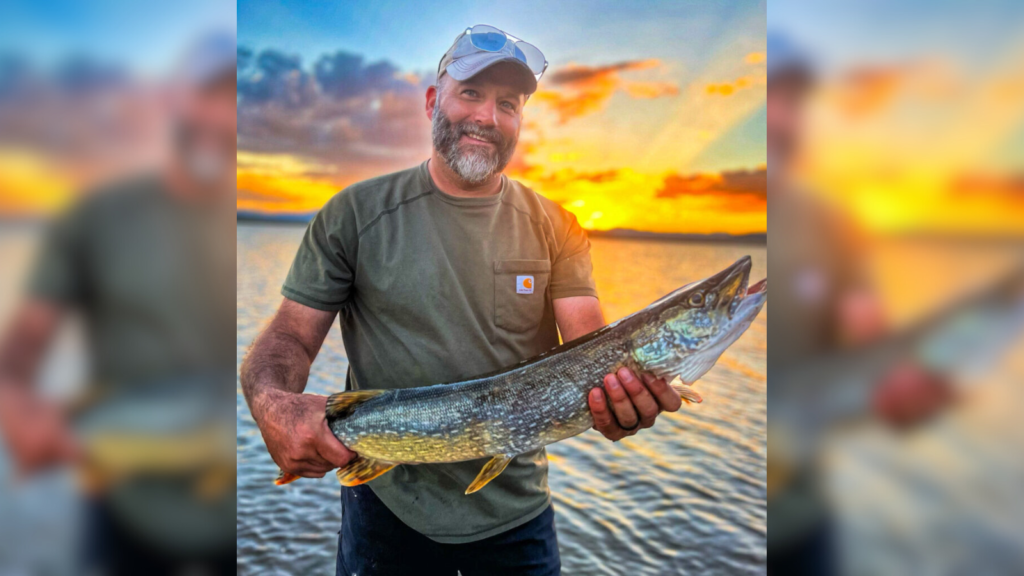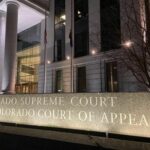Appeals court rebuffs challenge from environmental groups, says state met greenhouse gas responsibility

Contrary to the allegations of a pair of environmental groups, state agencies satisfied the legal deadline for proposing rules aimed at reducing greenhouse gas emissions in the next three decades, Colorado’s second-highest court concluded on Thursday.
The Environmental Defense Fund and WildEarth Guardians sought a judicial declaration that Colorado had blown past the cutoff date the legislature enacted in 2019 for drafting climate regulations. The groups contended that by July 1, 2020, state agencies needed to announce how Colorado would meet its goal of reducing greenhouse gas emissions by 90% in the future compared to 2005 levels.
But a three-judge panel for the Court of Appeals concluded it made no sense for the legislature to require the Colorado Air Quality Control Commission and Colorado Air Pollution Control Division to propose comprehensive rules a mere 13 months after the enactment of the legislation, given all of the other responsibilities laid out in the law.
Instead, the July 2020 deadline refers to data collection rules for measuring greenhouse gas emissions. By that metric, the state has complied with the law.
“While Plaintiffs urge an expedited process yielding comprehensive rules for attaining the overarching GHG emission reduction goals,” wrote Judge Terry Fox for the panel, “nothing in the statute prevents the Commission from approaching the state’s GHG emission challenge in stages.”
The ruling comes amid a recent acknowledgement from the air quality commission that “additional work needs to be done” as Colorado approaches its first emissions reduction benchmark in three years, with carbon emissions from the transportation sector a particular problem.
Jeremy Nichols, the climate and energy program director with WildEarth Guardians, said he did not expect the appellate court’s ruling itself to affect the state’s current plans to curb climate change.
“This lawsuit is one of many efforts that groups like ours have gotten out there to emphasize to Gov. (Jared) Polis and his administration that we’re not gonna just turn our back and hope for the best. We’re gonna hold them accountable,” he said. “The climate crisis isn’t about talk. It’s about action.”
In 2019, the General Assembly enacted and the governor signed multiple measures addressing climate change. House Bill 1261, whose subject was the establishment of greenhouse gas reduction goals, created three benchmarks for addressing the problem of carbon pollution. By 2025, the state would reduce its emissions by 26% relative to 2005 levels, with further reductions of 50% and 90% by 2030 and 2050, respectively.
The bill required the air quality commission to “timely promulgate implementing rules and regulations,” and to do so with input from industry, other state agencies and communities disproportionately at risk of environmental harm.
Another proposal, Senate Bill 96, pertained to the collection of greenhouse gas emissions data. Section 140 of the bill directed the commission, by July 1, 2020, to notify the public of a proposal to “implement measures that would cost-effectively allow the state to meet its greenhouse gas emission reduction goals.”
The issue for the courts to decide was whether the “measures” to be proposed by the July 2020 deadline needed to address the entire emissions-reduction benchmarks laid out in HB 1261, or something more modest.
Shortly after the deadline passed, the environmental groups sued the state in Denver District Court, alleging a failure to propose rules that would enable Colorado to meet its emissions-reduction benchmarks.
“To date, Defendants have not issued a notice of proposed rulemaking outlining how they intend to fully meet the mandate of SB 096,” wrote an attorney for WildEarth Guardians on July 9, 2020.
The plaintiffs and the government all agreed the air quality commission had taken three actions prior to July 2020 that addressed greenhouse gas emissions – specifically, rules for zero-emission vehicles, oil and gas facilities, and regulation of hydrofluorocarbons. But they also agreed those steps fell far short of meeting the overall reduction targets in HB 1261.
In November 2021, Chief Judge Christopher J. Baumann issued an order finding the government had, in fact, met its obligation under the law. The obligation of Section 140, he reasoned, was not to propose a full greenhouse gas reduction scheme by July 2020, but instead to announce rules in line with the purpose of SB 96 – collecting data on emissions.
“Considered within the structure of the entire statutory scheme, Section 140 requires Agency Defendants to collect data that state and local government agencies can utilize to analyze the potential economic effect of rules,” Baumann wrote, adding that the commission had already issued a regulation to that effect.
The Environmental Defense Fund and WildEarth Guardians appealed, disagreeing that Section 140 merely required the state, by July 2020, to take steps toward making the greenhouse gas reductions possible.
“Suppose an architect is hired to provide a design by a certain date that would allow the owner to build a 100-story building,” the plaintiffs’ attorneys wrote. “Then suppose the architect only submits a design for three stories by the deadline. Plainly the three-story design does not ‘make it possible’ for the builder to construct a 100-story building.”
During oral arguments last month, the Court of Appeals panel was curious about how HB 1261 and SB 96 interacted with each other.
How can the state know if HB 1261’s targets are met, asked Fox, “if it doesn’t have a good inventory of the sources of greenhouse gases by industry or by source or some accounting mechanism to target where the reductions need to come from?”
Section 140 “is mainly talking about data collection. So, why wouldn’t it be referring to measures for data collection?” added Judge David H. Yun.
Fox, in the panel’s opinion, noted the July 2020 deadline could not make sense for comprehensive emissions reduction rules given the other responsibilities the legislation imposed on the commission, including extensive engagement with relevant groups.
“So, if we were to adopt Plaintiffs’ interpretation, the Commission would effectively be denied the opportunity to perform the statewide, multi-faceted stakeholder engagement required,” she wrote.
Fox explained it would be a “fundamental absurdity” to require the state to propose rules to address three decades of emissions reductions without first setting up a data collection and emissions inventory system. Therefore, the air quality commission’s initial steps prior to July 2020 properly laid the framework for future emissions-reduction policy, the panel concluded.
Xcel Energy also participated in the lawsuit, agreeing with the government that an “unreasonable timeline” for developing climate change regulations was not what the law intended.
The case is Environmental Defense Fund et al. v. Colorado Department of Public Health and Environment et al.












